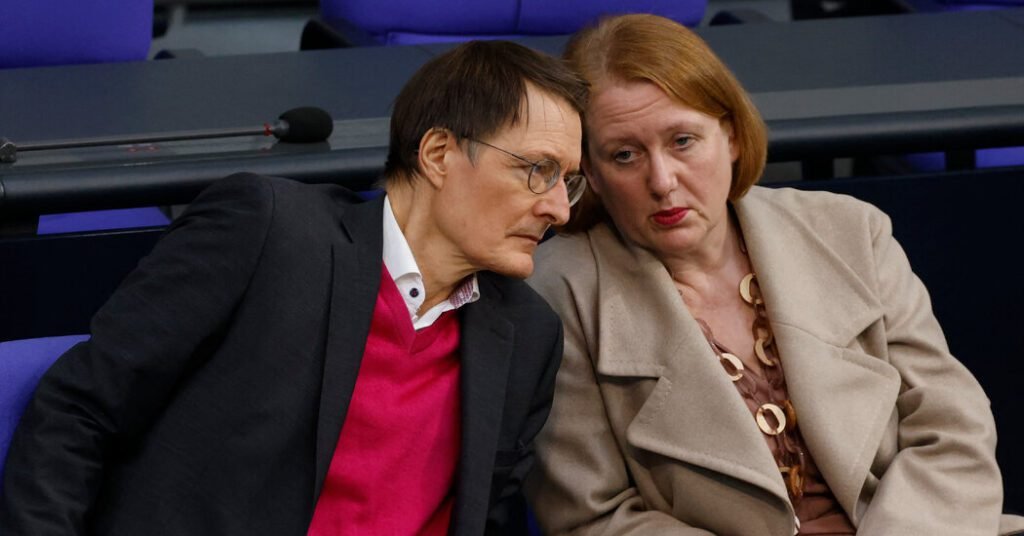Lawmakers in Germany approved the legalization of limited amounts of cannabis for recreational use on Friday, bringing the country one step closer to becoming one of the few European nations – and by far the largest – to do so.
“By legalizing it, we are taking cannabis out of the taboo zone,” Karl Lauterbach, who as health minister is largely responsible for the law, said on public television before the vote.
In the end, 407 MPs voted in favor of the proposal and 226 voted against the plan, which must now be approved by the Federal Council. That vote is expected next month.
Several other European countries, notably the Netherlands, tolerate the use of cannabis, but legalization is rare: within the European Union, only Malta and Luxembourg have gone so far. Medical marijuana has been legal in Germany since 2017.
If the law passes the Federal Council and is signed by the president, it will be developed in two steps. First, adults will be allowed to carry up to 25 grams, possess up to 50 grams and grow up to three plants for private consumption. Later, adults in Germany could form social clubs with up to 500 members that could grow and distribute marijuana.
The law passed on Friday was first announced in 2021, when Chancellor Olaf Solz’s three-party government was first formed. Before that, the legalization of cannabis had been blocked by former Chancellor Angela Merkel’s conservative party for years.
There are no immediate plans to allow commercial sale of the drug — which remains illegal under European Union rules — but the dozens of cannabis startups that have emerged in Germany believe the new law in Europe’s biggest economy could eventually lead to in opening up a large and lucrative legal drug market.
“The era of dysfunctional and unfair prohibition is coming to an end in our country, and Germany has the potential to serve as a model for other countries looking to explore legalization measures,” said Nicolas Kouparanis, CEO of Bloomwell Group. a statement.
Germans are divided over the proposal. According to a poll released Friday, 42 percent support legalization, while 47 percent were against.
Critics have opposed the new law on the grounds that it could normalize the drug and make it easier for minors to obtain it. But Mr Lauterbach has framed the new law as an attempt to keep teenagers safe from illegal drug use.
“This can only work if we can also make a bid to tackle the black market,” he told lawmakers before they voted on Friday.
The law includes provisions to protect minors, including a ban on drug consumption near schools or other places where young people congregate and tougher penalties for drug dealers caught selling to minors.
States have warned that legalization would put an extra burden on police, who expect to see a rise in the number of people driving under the influence of drugs on German roads and in other drug-related crimes.
“The same argument was used against mandatory seat belts,” Mr Lauterbach said during an interview on public television on Friday.
“Whenever a major, major piece of legislation is passed, we always have a duty to watch, especially at the beginning,” he added.
Opposition at the state level matters because the proposal must pass the Federal Council, which is made up of state leaders. The council could send the legislation back to an arbitration panel, which could delay the law’s implementation. But with a supportive majority in Parliament, the Federal Council cannot block the law indefinitely.
The law includes an amnesty provision for people convicted of minor drug possession before the law came into force. A group of judges had earlier warned that reviewing these cases could strain the judicial system.
“The judiciary expects that more than 100,000 files nationwide will be reviewed in the event of the planned retroactive deletion of sentences for cannabis-related offences,” Sven Rebehn, director of the German Federal Association of Judges, said in an interview with local newspapers. Mr. Rebehn estimated that it would take a panel of judges a full year to review old cases to see if they should be overturned.
But others celebrated the decision, noting that it was important for Germany to take a modern approach to the drug.
“This is an important milestone on the road to meaningful drug policy,” said Andreas Müller, a youth judge who has spent years fighting what he sees as unfair drug policies that unnecessarily clog up German courts.
In a telephone interview outside Parliament, where he celebrated the ruling, Judge Müller said: “For all those people who in the last 50 years of failed drug policy have been victims of prohibition, this day is a vindication.”

